Trials
LDS Quotes on Trials
LDS Quotes on Trials

“‘If God were good, He would wish to make His creatures perfectly happy, and if God were almighty He would be able to do what He wished. But the creatures are not happy. Therefore God lacks wither goodness, or power, or both.’ This is the problem of pain, in its simplest form.”
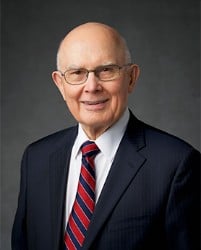
“Many years ago this conference heard of a young man who found the restored gospel while he was studying in the United States. As this man was about to return to his native land, President Gordon B. Hinckley asked him what would happen to him when he returned home as a Christian. “My family will be disappointed,” the young man answered. “They may cast me out and regard me as dead. As for my future and my career, all opportunity may be foreclosed against me.”
“Are you willing to pay so great a price for the gospel?” President Hinckley asked.
Tearfully the young man answered, “It’s true, isn’t it?” When that was affirmed, he replied, “Then what else matters?” That is the spirit of sacrifice among many of our new members.”
| “Sacrifice”
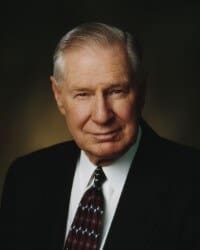
“There is a divine purpose in the adversities we encounter every day. They prepare, they purge, they purify, and thus they bless.”
| The Refiner's Fire, Ensign, May 1979, 53
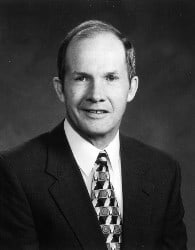
“Many of the most important principles of intelligence cannot be taught at universities, from books, or through other temporal learning processes. Often these great principles are learned from afflictions, tribulations, and other mortal experiences. All that we learn in this manner will benefit us not only in this life but also in the next, for ‘whatever principle of intelligence we attain unto in this life, it will rise with us in the resurrection’ (D&C 130:18).”
| “Adversity, the Great Teacher,” Ensign, Aug. 2006, 10
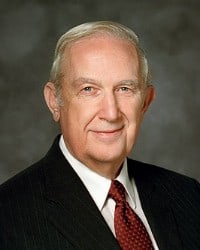
| “Finding Joy in Life,” Ensign, May 1996, p. 24
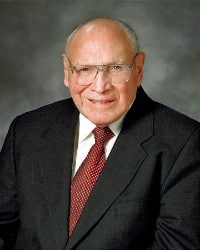
“Living the gospel does not mean the storms of life will pass us by, but we will be better prepared to face them with serenity and peace. ‘Search diligently, pray always, and be believing,’ the Lord admonished, ‘and all things shall work together for your good, if ye walk uprightly.'”
| "Finding a Safe Harbor," Ensign, May 2000, 59
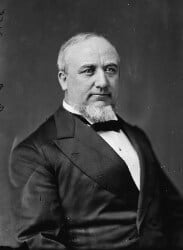
“If God deprives His children of any present blessing, it is so that He may bestow upon them a greater and more glorious one by and by.”
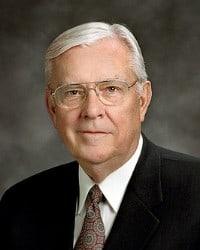
No matter how difficult the trail, and regardless of how heavy our load, we can take comfort in knowing that others before us have borne life’s most grievous trials and tragedies by looking to heaven for peace, comfort, and hopeful assurance. We can know as they knew that God is our Father, that He cares about us individually and collectively, and that as long as we continue to exercise our faith and trust in Him there is nothing to fear in the journey.
| “You Have Nothing to Fear from the Journey,” Ensign, May 1997, p. 59

“Everybody in this life has their challenges and difficulties. That is part of our mortal test. The reason for some of these trials cannot be readily understood except on the basis of faith and hope because there is often a larger purpose which we do not always understand. Peace comes through hope.”
| Hope, an Anchor of the Soul, Ensign, Nov 1999, 59

“Life is full of difficulties. Some are minor and others are major. There seems to be an unending supply of challenges for one and all. Our problem is that we often expect instantaneous solutions to such challenges, forgetting that frequently the heavenly virtue of patience is required.”
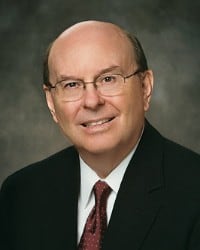
“Adversity should not be viewed as either disfavor from the Lord or a withdrawal of His blessings. Opposition in all things is part of the refiner’s fire to prepare us for an eternal celestial destiny.”
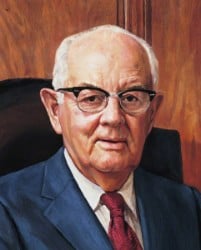
“Being human, we would expel from our lives sorrow, distress, physical pain, and mental anguish and assure ourselves of continual ease and comfort. But if we closed the doors upon such, we might be evicting our greatest friends and benefactors. Suffering can make saints of people as they learn patience, long-suffering, and self-mastery. The sufferings of our Savior were part of his education.”
| The Teachings of Spencer W. Kimball, ed. Edward L. Kimball (1982), 168

“The Christian doctrine of suffering explains, I believe, a very curious fact about the world we live in. The settled happiness and security we all desire, God withholds from us by the very nature of the world; but joy, pleasure, and merriment, He has scattered broadcast. We are never safe, but we have plenty of fun, and some ecstasy.
“It is not hard to see why. The security we crave would teach us to rest our hearts in this world and oppose an obstacle in our return to God; a few moments of happy love, a landscape, a symphony, a merry meeting with our friends, a bathe or a football match, have no such tendency. Our Father refreshes us on the journey with some pleasant inns, but will not encourage us to mistake them for home.”

“Who can count the vast throngs of the lonely, the aged, the helpless- those who feel abandoned by the caravan of life as it moves relentlessly onward and then disappears beyond the sight of those who ponder, who wonder, and who sometimes question as they are left alone with their thoughts. Patience can be a helpful companion during such stressful times.”
| Patience- A Heavenly Virtue, October 1995 General Conference
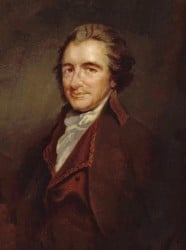
“I love the man who can smile in trouble, who can gather strength in distress and grow brave by reaction. It is the business of little minds to shrink, but he whose heart is firm, and whose conscience approves his conduct, will pursue his principles to the death.”
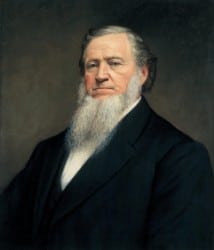
“The gospel causes men and women to reveal that which would have slept in their disposition until they dropped into their graves. The plan by which the Lord leads this people makes them reveal their thoughts and intents, and brings out every trait of disposition lurking in their beings.”

“As Joseph reminded his followers, ‘I believe that God foreknew everything, but did not foreordain everything.’ Exaltation, is within the reach of all, even if the journey toward that divine end is fraught with suffering. If we had insurance against a painful journey, one-third of the heavenly hosts would not have abandoned the enterprise. The risks are real. Or, in the language of the Book of Mormon, we cannot assume that our afflictions come from God, but we can know that ‘God shall consecrate [our] afflictions for [our] gain.'”
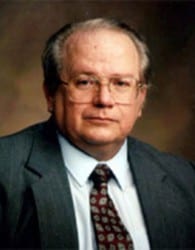
“God uses no magic wand to simply wave bad things into nonexistence. The sins that he remits, he remits by making them his own and suffering them. The pain and heartaches that he relieves, he relieves by suffering them himself. These things can be shared and absorbed, but they cannot be simply wished or waved away. They must be suffered.”
| Believing Christ: The Parable of the Bicycle and Other Good News

The Standard of Truth has been erected; no unhallowed hand can stop the work from progressing; persecutions may rage, mobs may combine, armies may assemble, calumny may defame, but the truth of God will go forth boldly, nobly, and independent, till it has penetrated every continent, visited every clime, swept every country, and sounded in every ear, till the purposes of God shall be accomplished, and the Great Jehovah shall say the work is done.

“The Lord will shape the back to bear the burdens placed upon it.”
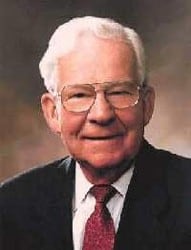
“A friend is a possession we earn, not a gift. . . . The Lord has declared that those who serve him and keep his commandments are called his servants. After they have been tested and tried and are found faithful and true in all things, they are called no longer servants, but friends. His friends are the ones he will take into his kingdom and with whom he will associate in an eternal inheritance.”
| “What Is a Friend?” Ensign, January 1973, p. 41
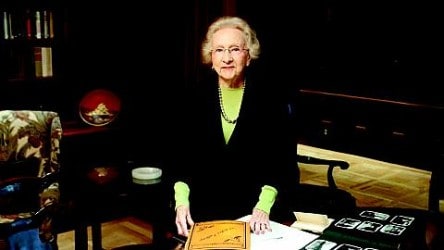
“It is not charity or kindness to endure any type of abuse or unrighteousness that may be inflicted on us by others. God’s commandment that as we love him, we must respect ourselves, suggests we must not accept disrespect from others. It is not charity to let another repeatedly deny our divine nature and agency. It is not charity to bow down in despair and helplessness. That kind of suffering should be ended.”
| Ensign, November 1991, p. 77
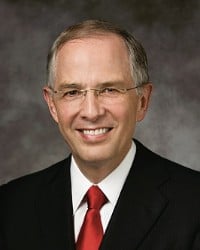
When personal difficulty, doubt, or discouragement darken our path, or when world conditions beyond our control lead us to wonder about the future, the spiritually defining memories from our book of life are like luminous stones that help brighten the road ahead, assuring us that God knows us, loves us and has sent His Son, Jesus Christ, to help us return home.
| Spiritually Defining Memories

“Here then is a great truth. In the pain, the agony, and the heroic endeavors of life, we pass through a refiner’s fire, and the insignificant and the unimportant in our lives can melt away like dross and make our faith bright, intact, and strong. In this way the divine image can be mirrored from the soul. It is part of the purging toll exacted of some to become acquainted with God. In the agonies of life, we seem to listen better to the faint, godly whisperings of the Divine Shepherd.
“Into every life there come the painful, despairing days of adversity and buffeting. There seems to be a full measure of anguish, sorrow, and often heartbreak for everyone, including those who earnestly seek to do right and be faithful. … In this way the soul can become like soft clay in the hands of the Master.”
| The Refiner's Fire, Ensign, May 1979, 53

The first principle of the gospel is faith in the Lord Jesus Christ. Faith means trust – trust in God’s will, trust in His way of doing things, and trust in His timetable. We should not try to impose our timetable on His. . . . Indeed, we cannot have true faith in the Lord without also having complete trust in His will and in His timing. . . .
The Lord’s timing also applies to the important events of our personal lives. A great scripture in the Doctrine and Covenants declares that a particular spiritual experience will come to us “in his own time, and in his own way, and according to his own will” (D&C 88:68). This principle applies to revelation (see Oaks, “Teaching and Learning by the Spirit,” Ensign, March 1997, 11) and to all of the most important events in our lives: birth, marriage, death, and even our moves from place to place. . . .
It is not enough that we are under call, or even that we are going in the right direction. The timing must be right, and if the time is not right, our actions should be adjusted to the Lord’s timetable as revealed by His servants. . . .
| “Timing,” Ensign, October 2003

“Recovering from suffering is not like recovering from a disease. Many people don’t come out healed; they come out different.”
| The Road to Character
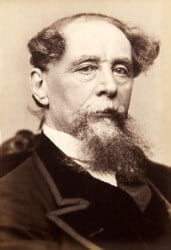
Suffering has been stronger than all other teaching, and has taught me to understand what your heart used to be. I have been bent and broken, but – I hope – into a better shape.
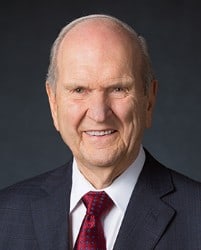
“Some people pray only when confronted with personal problems. Others don’t pray at all. A scripture makes this observation: “Ye do not remember the Lord your God in the things with which he hath blessed you, but ye do always remember your riches, not to thank the Lord your God for them.”
| Ensign, May 2003, p. 7
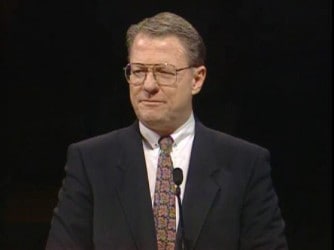
All of our decisions will not be perfect. We will feel hopefully only temporarily, regret. But let us never wait for perfect clarity. It will be a rare decision indeed when all of the data in perfect clarity is apparent before the decision is made. Some of our greatest growth comes from the mind stretching exercise of filling in where information is not available and weighing that which is incomplete. Sometimes there must simply be a leap of faith.
| “Decisions Determine Our Destiny,” February 6, 1981
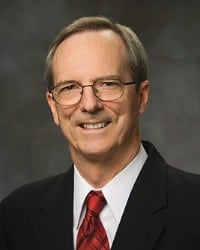
“Every temptation proves a crossroad where we must choose between the high road and the low road. On some occasions it is a trial of agonizing frustration. On other occasions, it is a mere annoyance, a nuisance of minor proportions. but in each case there is some element tot uneasiness, anxiety, and spiritual tugging–ultimately a choosing that forces us to take sides. Neutrality is a nonexistent condition in this life. We are always choosing, always taking sides. That is part of the human experience–facing temptations on a daily, almost moment-by-moment basis–facing them not only on the good days but on the days we are down, the days we are tired, rejected, discouraged, or sick. Every day of our lives we battle temptation–and so did the Savior. It is an integral part of the human experience, faced not only by us but also by him. He drank from the same cup.”
| The Infinite Atonement

“Part of the human experience is to confront temptation. No one escapes. It is omnipresent. It is both externally driven and internally prompted. It is like the enemy that attacks from all sides. It boldly assaults us in television shows, movies, billboards, and newspapers in the name of entertainment or free speech. It walks down our streets and sits in our offices in the name of fashion. It drives our roads in the name of style. It represents itself as political correctness or business necessity. It claims moral sanction under the guise of free choice. On occasion it roars like thunder; on others it whispers in subtle, soothing tones. With chameleon-like skill it camouflages its ever-present nature, but it is there–always there.”
| The Infinite Atonement
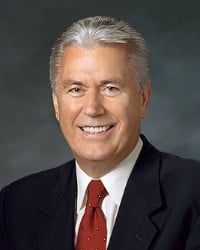
We don’t always know the details of our future. We do not know what lies ahead. We live in a time of uncertainty. We are surrounded by challenges on all sides. Occasionally discouragement may sneak into our day; frustration may invite itself into our thinking; doubt might enter about the value of our work. In these dark moments Satan whispers in our ears that we will never be able to succeed, that the price isn’t worth the effort, and that our small part will never make a difference. He, the father of all lies, will try to prevent us from seeing the end from the beginning.
| “See the End from the Beginning,” Ensign, May 2006, p. 43
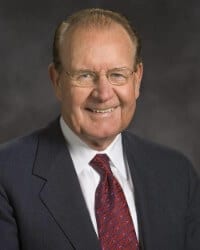
“Sometimes we find that even when we do our best to serve God, we still suffer. The key is to remember that faith and obedience are still the answers – even when things go wrong, perhaps especially when things go wrong.”

No one reaches out to you for compassion or empathy so you can teach them how to behave better. They reach out to us because they believe in our capacity to know our darkness well enough to sit in the dark with them.
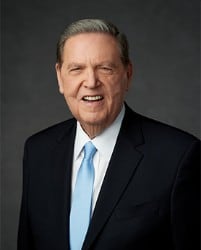

“Nearly all men can stand adversity, but if you want to test a man’s character, give him power.”

“I recognize that, on occasion, some of our most fervent prayers may seem to go unanswered. We wonder, “Why?” I know that feeling! I know the fears and tears of such moments. But I also know that our prayers are never ignored. Our faith is never unappreciated. I know that an all-wise Heavenly Father’s perspective is much broader than is ours. While we know of our mortal problems and pain, He knows of our immortal progress and potential. If we pray to know His will and submit ourselves to it with patience and courage, heavenly healing can take place in His own way and time.”
| “Jesus Christ – the Master Healer,” Ensign, November 2005, p. 86
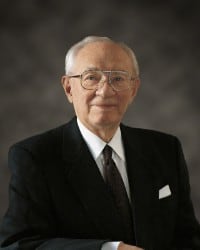
“Pray for wisdom and understanding as you walk the difficult paths of your lives. If you are determined to do foolish and imprudent things, I think the Lord will not prevent you. But if you seek His wisdom and follow the counsel of the impressions that come to you, I am confident that you will be blessed.”
| “Benediction,” Ensign, May 2003, pp. 99-100
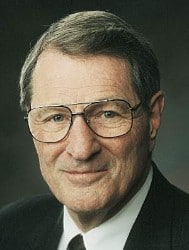
“If we are serious about our discipleship, Jesus will eventually request each of us to do those very things which are most difficult for us to do.”
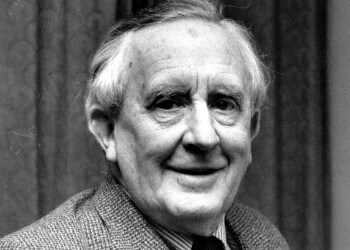
“The world is indeed full of peril, and in it there are many dark places; but still there is much that is fair, and though in all lands love is now mingled with grief, it grows perhaps the greater.”

“The Savior’s teaching that handicaps are not punishment for sin, either in the parents or the handicapped, can also be understood and applied in today’s circumstances. How can it possibly be said that an innocent child born with a special problem is being punished? Why should parents who have kept themselves free from social disease, addicting chemicals, and other debilitating substances which might affect their offspring imagine that the birth of a disabled child is some form of divine disapproval? Usually, both the parents and the children are blameless. The Savior of the world reminds us that God ‘maketh his sun to rise on the evil and on the good, and sendeth rain on the just and on the unjust.’ (Matt. 5:45.)”
| “The Works of God,” Ensign, Nov. 1984, 59

“…the strait and narrow path, though clearly marked, is a path, not a freeway nor an escalator. Indeed, there are times when the only way the strait and narrow path can be followed is on one’s knees!”
| A Brother Offended, Ensign, May 1982, 37

In a paradoxical way, afflictions and sorrow prepare us to experience joy if we will trust in the Lord and His plan for us. This truth is beautifully expressed by a 13th-century poet: “Sorrow prepares you for joy. It violently sweeps everything out of your house, so that new joy can find space to enter. It shakes the yellow leaves from the bough of your heart, so that fresh, green leaves can grow in their place. It pulls up the rotten roots, so that new roots hidden beneath have room to grow. Whatever sorrow shakes from your heart, far better things will take their place.”
| Consistent and Resilient Trust

“Unless healed by the Lord, mental, physical, or sexual abuse can cause you serious, enduring consequences. As a victim you have experienced some of them. They include fear, depression, guilt, self-hatred, destruction of self-esteem, and alienation from normal human relationships. When aggravated by continued abuse, powerful emotions of rebellion, anger, and hatred are generated. These feelings often are focused against oneself, others, life itself, and even Heavenly Father. Frustrated efforts to fight back can degenerate into drug abuse, immorality, abandonment of home, and, tragically in extreme cases, suicide. Unless corrected, these feelings lead to despondent lives, discordant marriages, and even the transition from victim to abuser. One awful result is a deepening lack of trust in others which becomes a barrier to healing. . . .I solemnly testify that when another’s acts of violence, perversion, or incest hurt you terribly, against your will, you are not responsible and you must not feel guilty. . . .”
| “Healing Tragic Scars of Abuse,” Ensign, May 1992, p. 31

I testify that when we embark upon or continue the incredible journey that leads to God, our lives will be better. This does not mean that our lives will be free from sorrow. We all know of faithful followers of Christ who suffer tragedy and injustice–Jesus Christ Himself suffered more than anyone. Just as God makes the “sun to rise on the evil and on the good,” He also allows adversity to test the just and the unjust. In fact, sometimes it seems that our lives are more difficult because we are trying to live our faith. No, following the Savior will not remove all of your trials. However, it will remove the barriers between you and the help your Heavenly Father wants to give you. God will be with you. He will direct your steps. He will walk beside you and even carry you when your need is greatest.
| A Yearning for Home
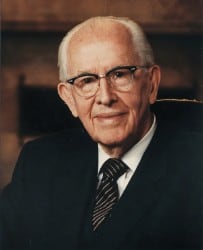
“We must not lose hope. Hope is an anchor to the souls of men. Satan would have us cast away that anchor. In this way he can bring discouragement and surrender. But we must not lose hope. The Lord is pleased with every effort, even the tiny, daily ones in which we strive to be more like Him. Though we may see that we have far to go on the road to perfection, we must not give up hope.”
| A Mighty Change of Heart, Ensign, Oct. 1989, 2

“Willingness to experience difficult thoughts, feelings, and experiences is put in the service of our values. This is what makes willingness different from wallowing”
| S. C., & Walser, R. D. (2007). Learning ACT: An acceptance & commitment therapy skills-training manual for therapists. Oakland, CA: New Harbinger Publications.

“We should not need a hurricane or other crisis to remind us of what matters most. The gospel and the Lord’s plan of happiness and salvation should remind us. What matters most is what lasts longest, and our families are for eternity.”
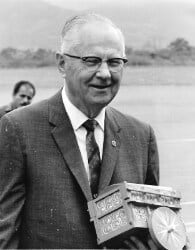
“Sometime in the eternities to come, we will see that our trials were calculated to cause us to turn to our Heavenly Father for strength and support. Any affliction or suffering we are called upon to bear may be directed to give us experience, refinement, and perfection.”
| "The Blessings of Righteous Obedience", Ensign, Nov. 1977